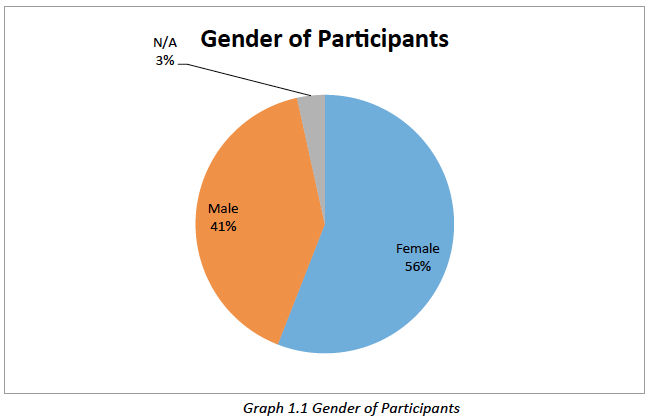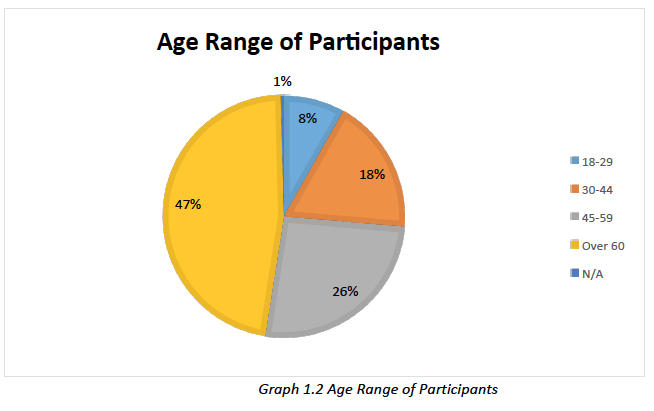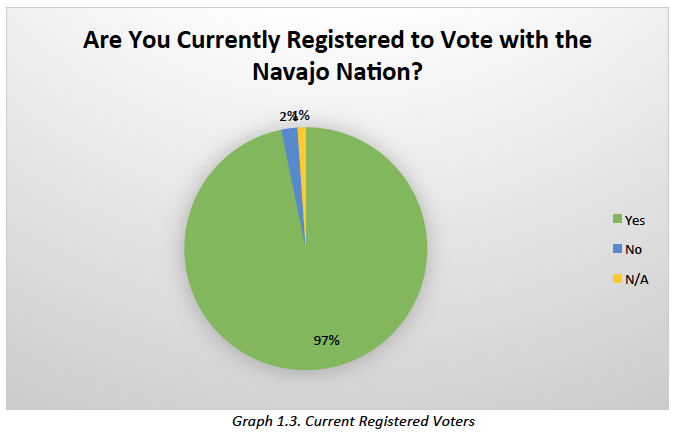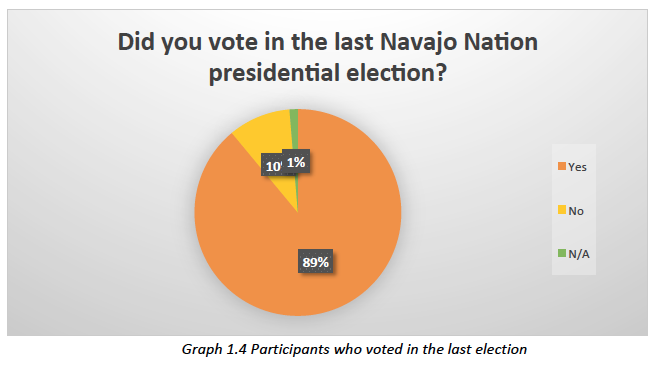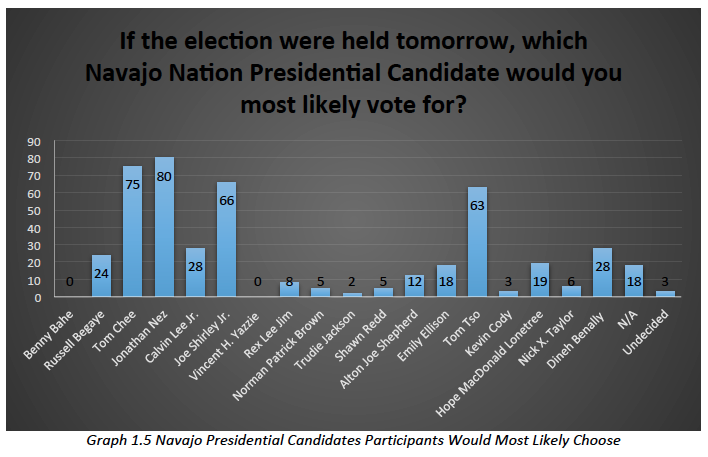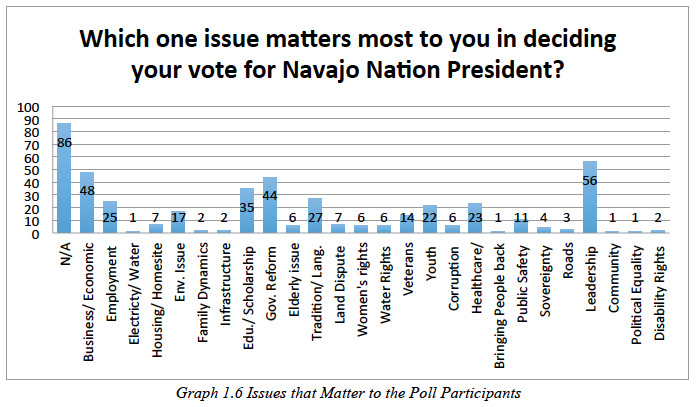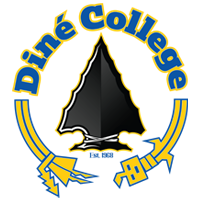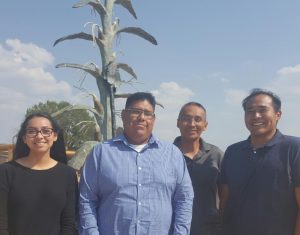
DPI Office: Tia Folgheraiter(Student), Michael Parrish(Analyst), Dr. Franklin Sage(Director) and Majerle Lister(Research Assistant)
Shiprock, NM, August 6th, 2018
SHIPROCK, NM — Diné Policy Institute and the Office of Government Development distributed exit polls at the 2018 Navajo Nation Presidential Forum held at the Phil Thomas Performing Arts Center on August 6, 2018.
The Navajo Times Publishing Co. and KTNN Radio asked the Office of Government Development and Diné Policy Institute to conduct exit polls at the presidential forums. The poll conducted was to see which candidate the voters, at the forum, are most likely to vote for in the upcoming Navajo Nation Primary Election on August 28, 2018. Diné Policy Institute and Government Development created a survey that ranged from demographic questions to open ended political issues that will help voters choose their most qualified candidate.
With this partnership, 683 surveys were distributed and 463 completed surveys were returned for data collection. As a result, the Phil Thomas P.A.C. forum demonstrates that 56% of poll participants identify as female, 41% of poll participants identify as male, and 3% were not applicable. Additionally, 47% of poll participants are over the age of 60. Of the 18 presidential candidates, Vice President Jonathan Nez received 17% of the votes followed by Tom Chee with 16% and former president, Joe Shirley Jr. with 14%.
Unlike the Twin Arrows forum, poll participants were split between the top 3 picked candidates.
The results from Jonathan Nez’s vote of 17%, poll participants are reliable within ±3.4% at 95% confidence level. It is expected that each community has a candidate that they support overwhelmingly, but this poll demonstrates otherwise. It is important to note that the data collected is for this presidential forum and does not indicates a particular winner for the primary election.
Altogether, 97% of poll participants marked that they are registered to vote in the Navajo Nation and 89% of participants voted in the last Navajo Nation election. Poll participants voiced many issues such as: business development, government reform, and leadership. These were the top three issues they wrote down in their decision making process.
There are many presidential candidates, but it is still unclear who voters will vote for in the next primary election. Until August 28, DPI will continue to conduct exit polls at future presidential forums.
• Graph 1.1 shows that 56% of the poll participants identified as female, 41% identified as male, and 3% marked N/A.
• Graph 1.2 displays that 37 of the participants were between the ages of 18-29, 60 were 30-44, 120 were 45-59, 217 were over 60, and 29 put N/A.
• Graph 1.3 displays that 97% of the participants are registered to vote with the Navajo Nation and 2% are not registered to vote.
Diné Policy Institute & Office of Navajo Government Development
• Graph 1.4 shows that 89% of the participants voted in the last presidential election, 10% did not vote in the last presidential election, and 1% did not respond.
• Graph 1.5 indicates that 0 participants would vote for Benny Bahe, 24 participants would vote for President Russell Begay, 75 would vote for Tom Chee, 80 would vote for
Vice President Jonathan Nez, 28 would vote for Calvin Lee Jr., 66 would vote for Joe Shirley Jr., 0 would vote Vincent H. Yazzie, 0 would vote for Rex Lee Jim, 5 would vote for Norman Patrick Brown, 5 would vote for Trudie Jackson, 5 would vote for Shawn Redd, 12 would vote for Alton Joe Sheppard, 18 would vote for Emily Ellison, 63 would vote for Tom Tso, 3 for Kevin Cody, 19 would vote for Hope Macdonald Lonetree, 6 for Nick X.
Taylor, 28 would vote for Dineh Benally, 18 did not put a response, and 3 were undecided.
• Graph 1.6 demonstrates that 48 participants wrote that business/economic development was their one issue, 86 did not respond, 56 marked leadership, 27 wrote tradition and language, 25 wrote employment, 35 wrote education/scholarship, 7 wrote housing/home site leases, 17 wrote environmental issues, 44 wrote government reform, 14 wrote veteran issues, 6 wrote corruption, 6 wrote elderly issues, 22 wrote youth issues, 1 wrote that bringing the youth back to the reservation was a issue, 23 wrote health care and behavior health issues, 5 wrote access to electricity and water, 2 wrote infrastructure, 6 wrote water rights, 1 wrote community involvement issues , 6 wrote women’s rights, 11 wrote public safety issues, 4 wrote sovereignty issues, 3 wrote roads, 2 wrote family dynamic issues, and 1 wrote political equality.
